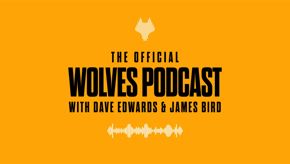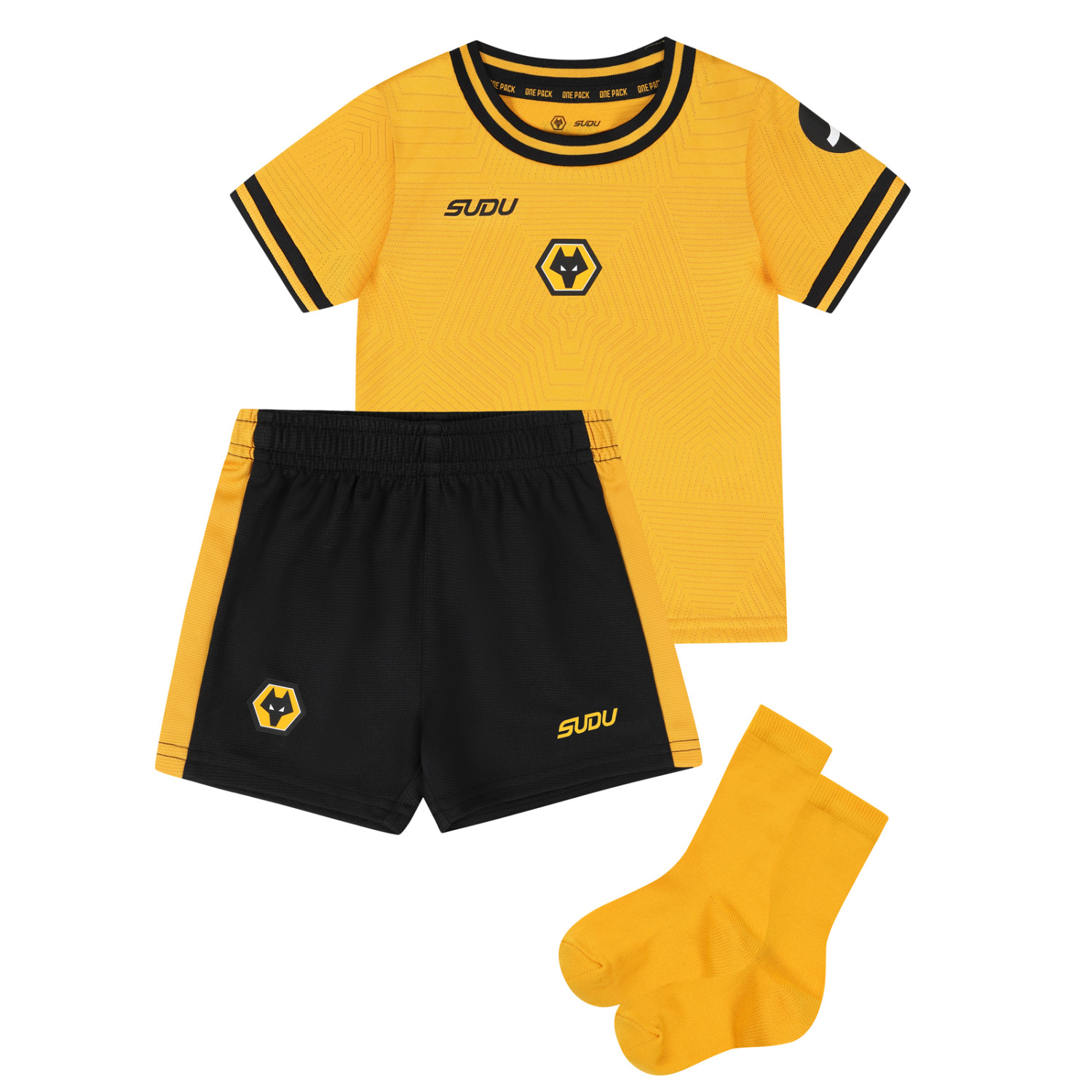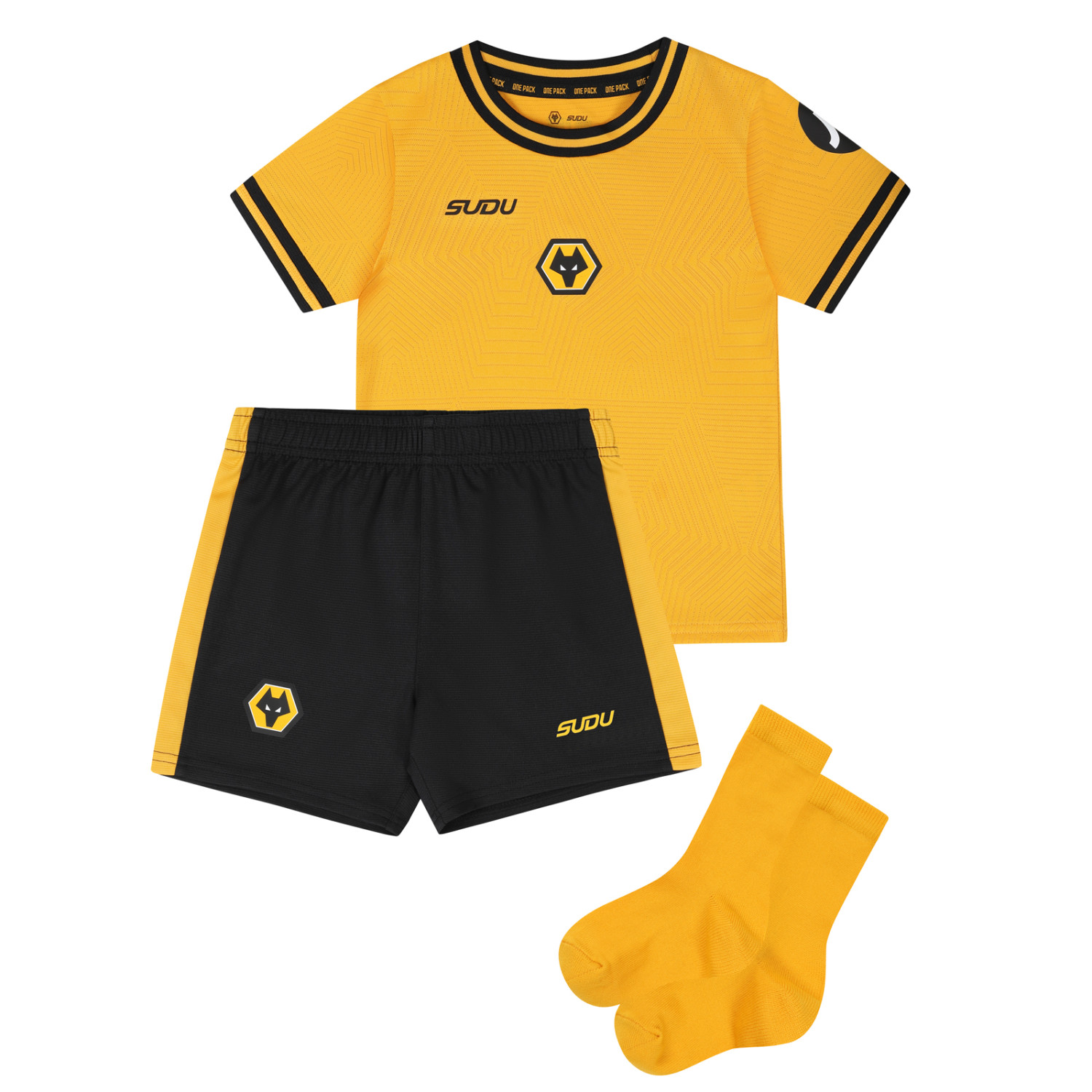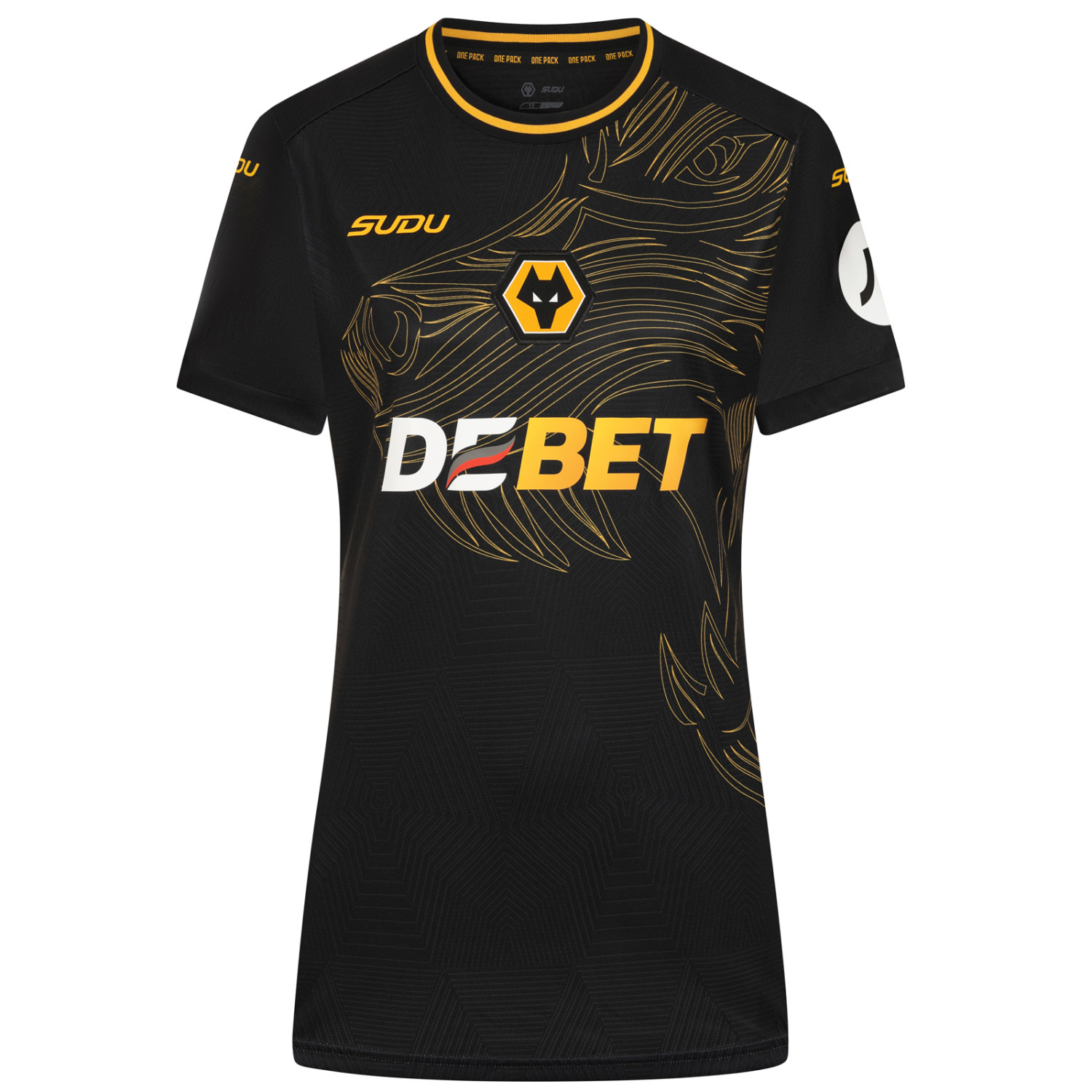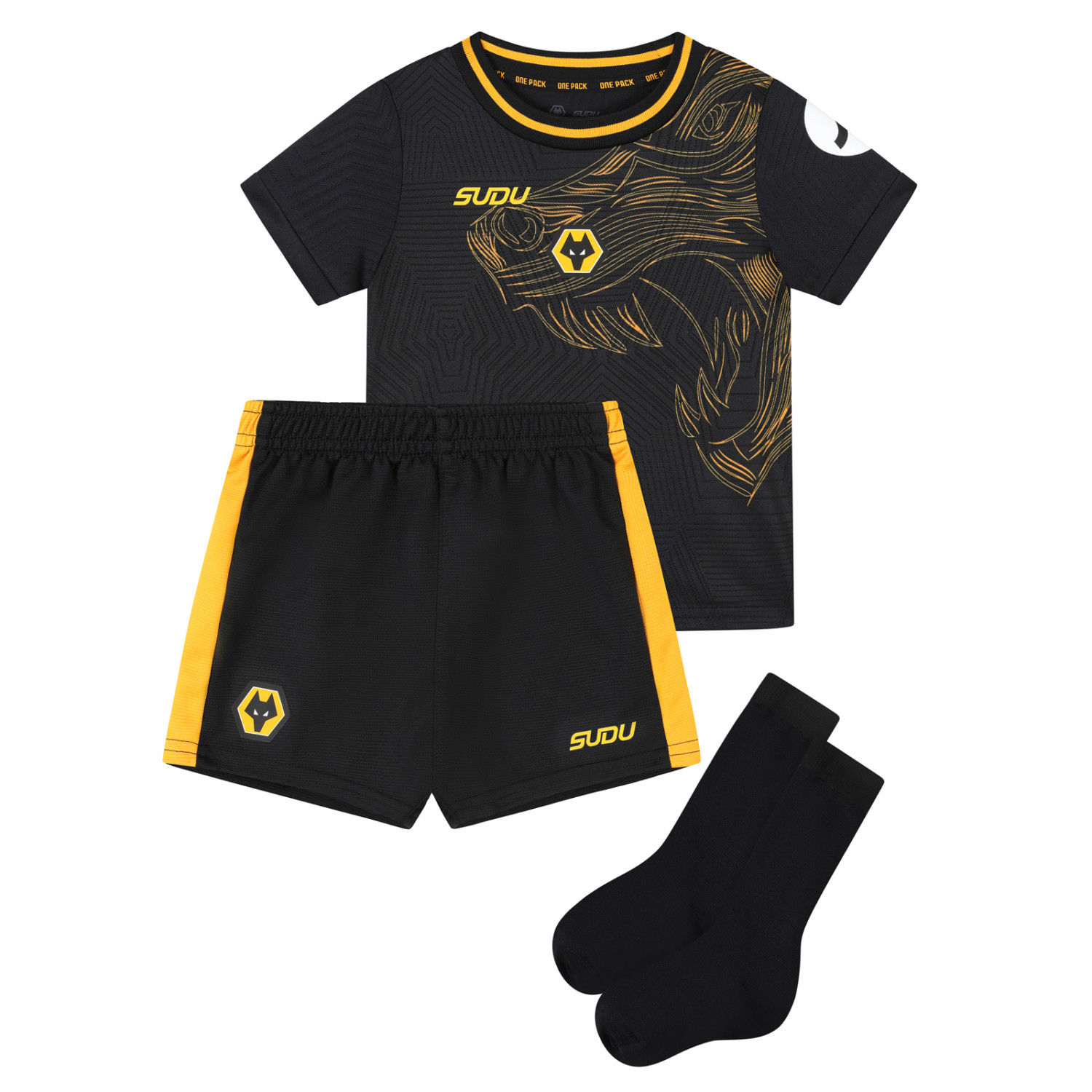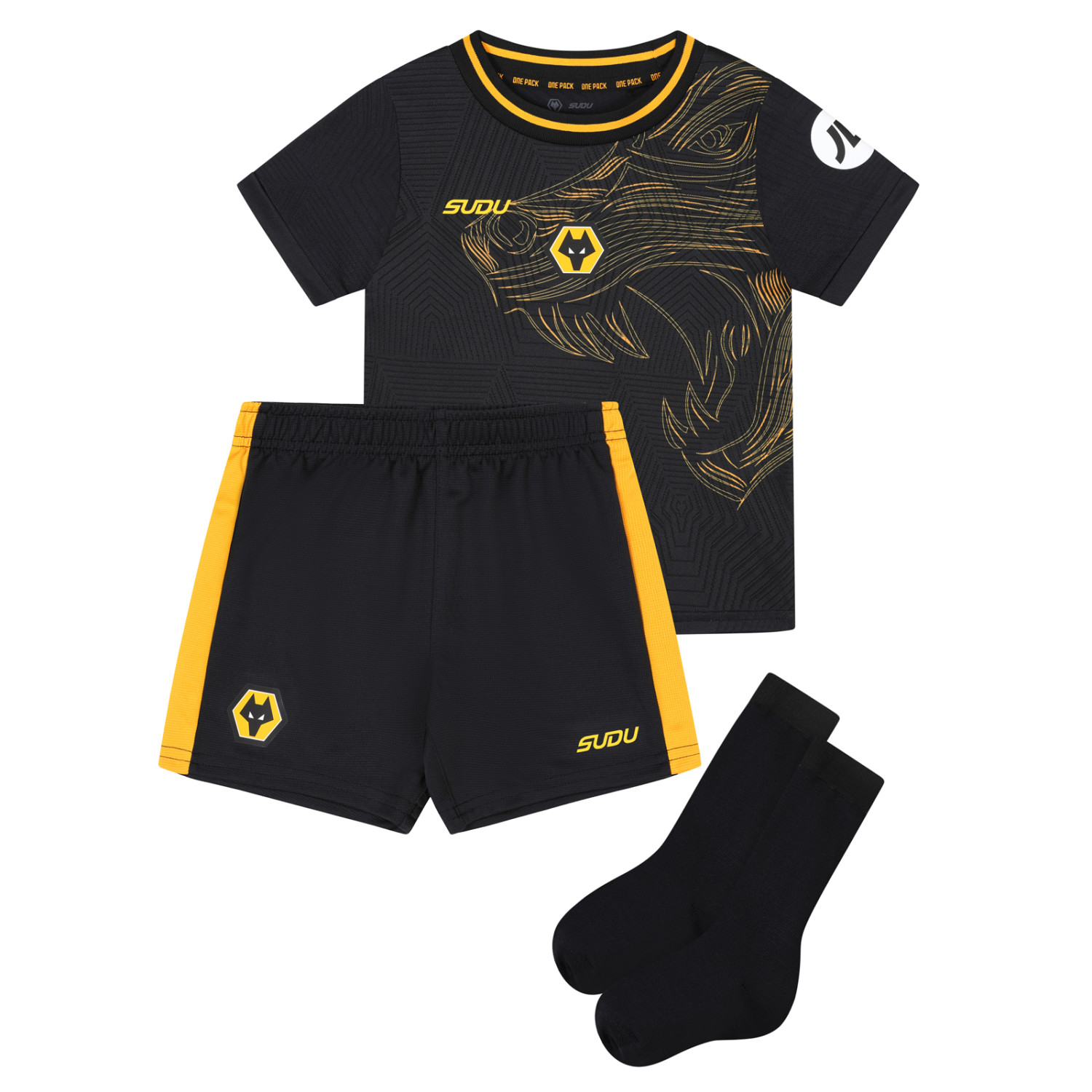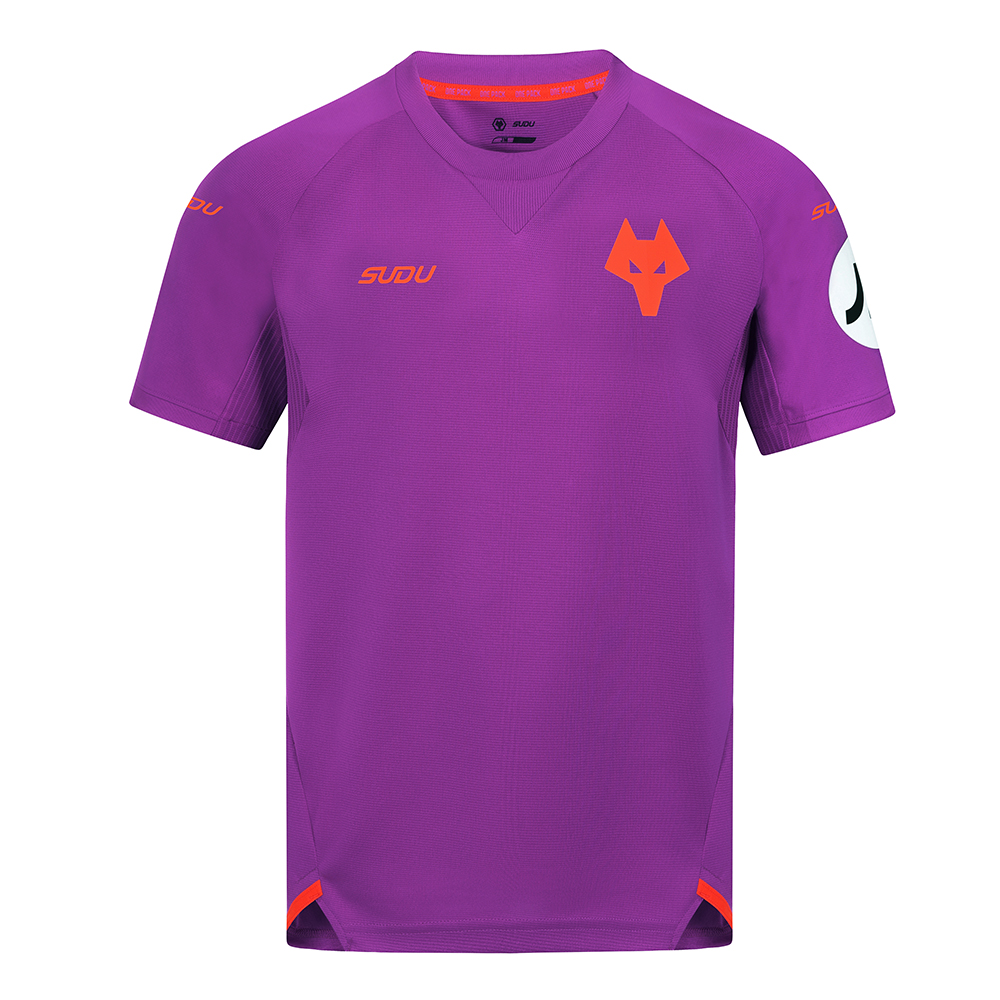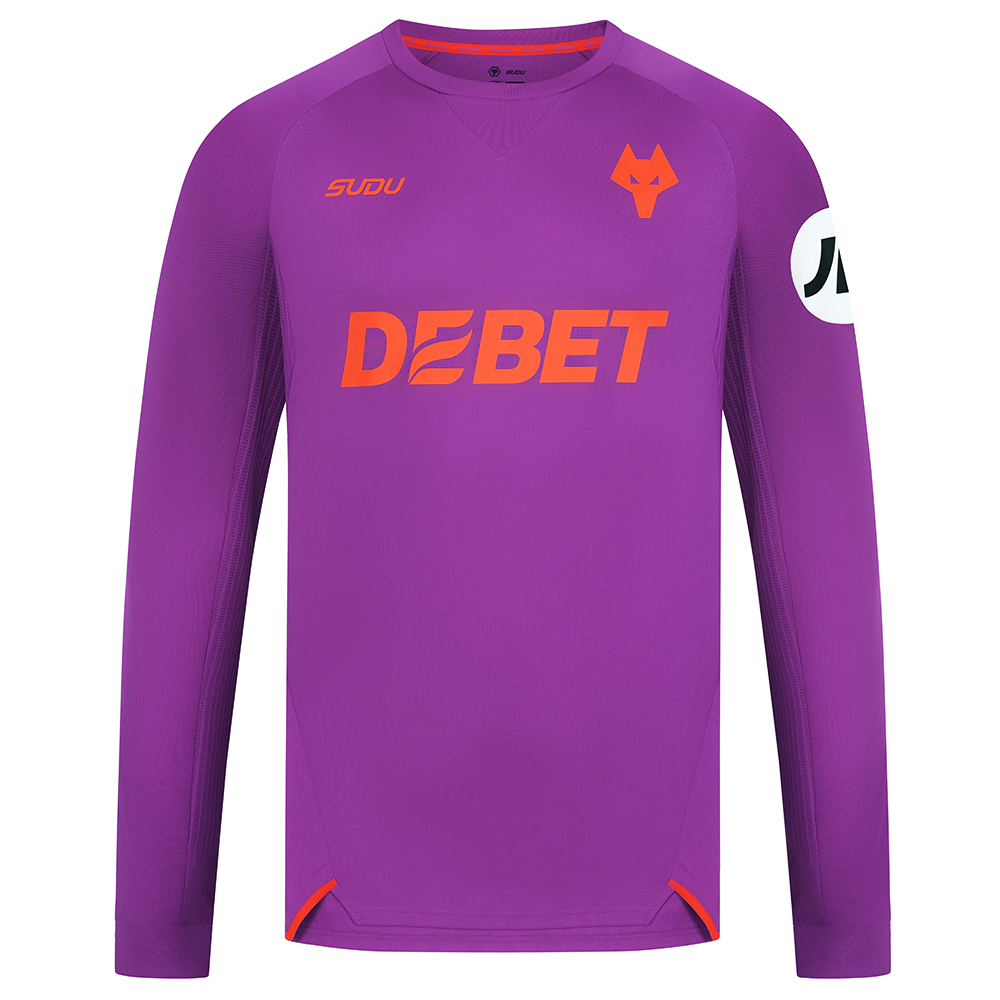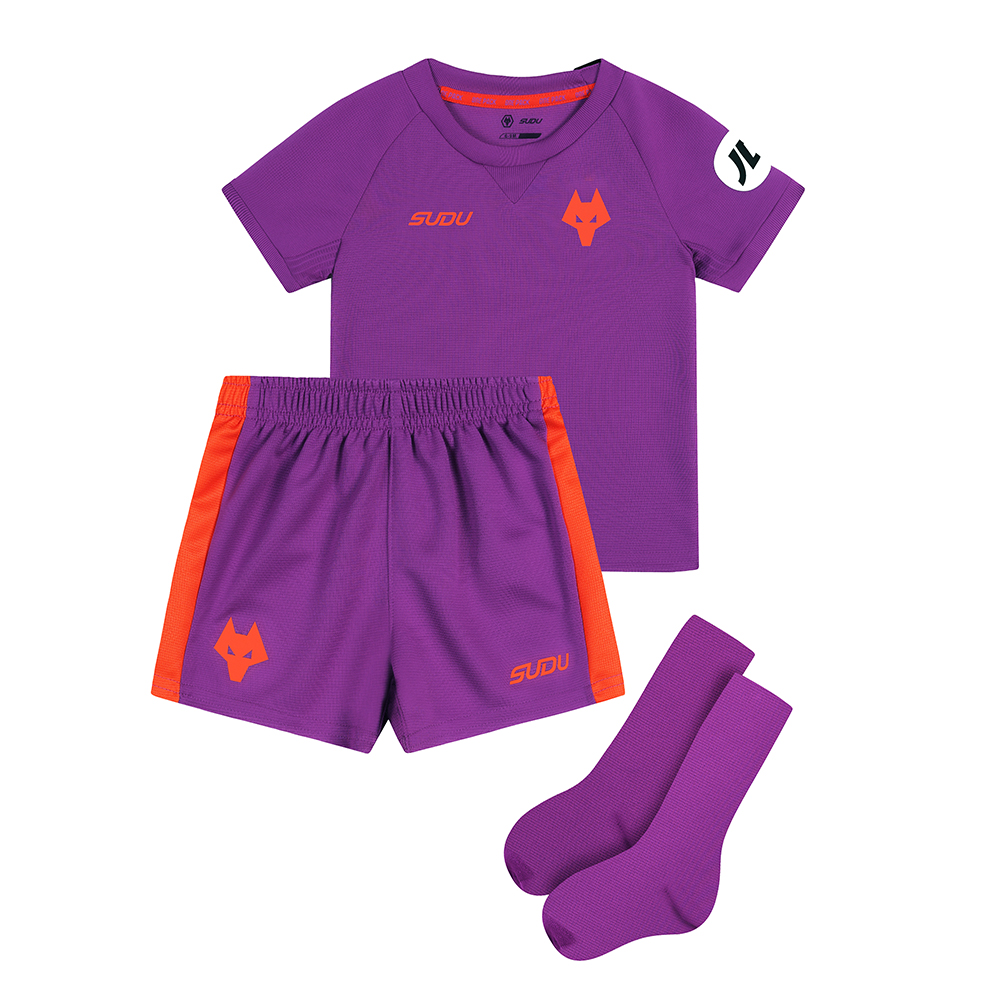Johnny Phillips: Well, Jeff, it was fascinating and insightful to hear from the leadership group as a whole yesterday. Today we’ve got some questions specifically for you, which I hope you can add to and paint more of a picture for supporters. We’ll start with one from Clive Smout who’s given quite an interesting one about the Fosun objective as a whole. What is the end objective for Fosun with Wolves?
Jeff Shi: At the beginning, I think it was not so clear, to be honest. Because we wanted to expand into the football industry, we saw it as a good target and we could have a try. So it’s not very important then, but it’s a pilot project for us, but after five years now, it’s like a partner, you have the emotional attachment to the club and now it’s already a part of Fosun and in the blood. So I can say the end objective is always, always stay with Fosun, and no matter how good the performances on the pitch, we always try to improve the club. And one day maybe we will be the champions, one day maybe we don’t do so well, but it doesn’t matter. Sometimes it’s hard to explain, like a member of your family, what’s your end objective with him or her, so it’s hard to say. But I can say the emotional attachment is very strong and that’s the reason I don’t want to say too much about the final target or whatever, it’s more about the connection between the two parties and it’s not like a normal commercial connection.
JP: I see. A lot of fans talk about a five-year plan or a 10-year plan, has that changed slightly, is it more of a family feel to this, where you are not putting numbers down?
JS: Yes, we always want to be the best. It’s like with my daughters, I want them to go to Oxford or Cambridge, to find a good job in the future, to have a good life, but maybe they cannot go to Cambridge or Oxford, right? Maybe they will fail in their exams or whatever, but it doesn’t matter. It’s like this. Of course, in 10 years, 20 years, we do hope Wolves will be the best in the world, that doesn’t change, but it doesn’t mean that we are very anxious or very eager, no. I think we have a dream, we have a plan. We’re trying our best to make the plan be realised, but in the process it’s more like you are cultivating your daughters, sons, trying to help them to be strong, but sometimes maybe they will never be there, but it doesn’t matter. So that’s kind of a feeling of balance like this.
JP: I see. Ian Edwards has said that Fosun have been great for Wolves and many fans echo those sentiments, but why are Wolves good for Fosun?
JS: First, of course, regarding the marketing view, I think football is quite special and it’s not the same as all the other things Fosun are doing. It’s about the attention, the awareness from the world, because every week we have some games and lose or win and it always improves the attention. And also because Wolves have a strong presence in the world, even to the government, to the market, or the fans around the world, and so Fosun becomes more famous, more popular. I think that’s one of the values to us. And also sometimes I think doing business is a little bit boring for everyday commercial things, but football can provide the whole company, the whole group, something fun and something interesting and very emotional. Inside, it’s also very interesting to improve the culture, the environment and the atmosphere inside the whole group. All of the things… I think it’s hard to describe it one by one very logically, but it’s like when you have a new baby, of course it has value to you, right? But the value is harder to speak about in a very sensible way, it’s like emotional value to us.
JP: A lot of supporters have spoken about the Chinese government’s attitude to football and where they see football developing and whether or not Fosun and what Fosun can do with Wolves is connected to that and whether or not there are restrictions led by the government in that sense?
JS: No, I think it’s not about the government. So far, we don’t feel any pressure from the government. Wolves are still a UK-based club, so we follow the law in the UK, so I think don’t put too much weight on Chinese government, UK government; football is not about politics. So far we feel quite free.
JP: They’ll be pleased to hear that. James Batham is perhaps going to put you on the spot here. He says what are the top three things you’ve learnt during your time as chairman of the club?
JS: You mean the bad things?! [Laughs]
JP: Good or bad? What three things stand out as things you’ve really learnt and taken on board?
JS: Okay, maybe not good, not bad. The first thing is even after five years I think I still don’t know Wolves fans enough. At the beginning, I thought, okay, they are Wolves fans, but after five years I doubt I know them enough. So sometimes I feel we still need to find the chemistry between the fans and us and so that is the reason why I need to come out to say something to them because I also watched social media content, watched fans’ forums, so I know what they’re thinking about. But sometimes I think Wolves fans, a group of fans, sometimes are very contradicted. Sometimes they are very warm, they are very enthusiastic, sometimes they are very negative, very down. But it’s how to find the bridge, because inside the club as a leader, or from the owner, or from the board, I think we have to be very calm, we have to be very calm. Football is very emotional we understand, but any decision made from us should be based on a very calm mind. So I think it’s a really bad mistake if you’re influenced too much by the outside pressure or emotional actions or whatever, then you will do something wrong. So something I want to explain to the fans is that I cannot be so emotional, I cannot come out to say something after a defeat or whatever. I was emotional for some days, but I tried my best to calm myself down after the game and tomorrow then I will still be very logical, sensible, because I cannot make mistakes because of emotional things. So that’s the reason maybe they think Jeff is always very cold, very cool, not so interested, but actually in my heart I am, but if you want to steer the ship in the right direction and avoid the icebergs, you have to be calm. So that’s one thing I have learnt, but I am trying to find the balance and trying to find the chemistry, so the effort now is a gesture as I want to show the fans that we want to speak and we want to find mutual understanding between us. So that’s number one. Number two, I think maybe it’s not so easy to get a promotion team to now maybe go to top six, top four, it’s not easy. At the beginning, I thought from the Championship to the Premier League is hard – yes, it is hard, but it’s not that hard compared with breaking into the top six, top four constantly. So now it is a big challenge to me, even compared to three or four years ago, how to find a way to stay in the elite group in the Premier League for a long time and I do think it is not only about the first-team, it is about the academy, it’s about commercial power, it’s about the fanbase, it’s about the people inside the club, they have to be very intelligent and working very hard, so that takes time. So yes, maybe the next lesson I’ve learnt is time is our friend, so don’t push, don’t be too anxious, try to take the time, but make something very solid, very stable, and then the nice times will come. So that’s the second one. The third one: I have to say I think we have a fantastic squad; the head coach, the team here, the staff here are doing a very good job. I think it’s the squad, the structure of the team in the whole club, I have never seen in the last five years. I think now I realised that sometimes my plans or my thoughts five years ago – do you remember in the press conferences in Molineux together with Walter Zenga, and something I said then, I thought it’s not so good, because it’s quite naïve now, because after five years, even for myself I have grown up, I have learnt a lot from football and I have learnt a lot about how to run a club. So one of the things I feel very glad about is the people here, including Max, Scott, whoever, the team here, they are very strong and also we have found some real chemistry, balancing the football culture and also a corporate culture and how to do something fresh and creative and how to push everyone here to do something new. So in the past maybe we said, okay, we just want to get promotion, copy the same story as Leicester or whatever. I think that’s a common story, but it’s not so interesting. Now we are at a stage for the club and for the company to find something only belonging to ourselves, only we can do, not others, but belonging to our identity, our gene and our dream, our own dreams, and our own teams. Then we can find something to do and to achieve only for ourselves; we don’t want to copy any other clubs, so that’s something different from five years ago. Maybe the fans don’t know that, but the team here we are talking about it every day, so it’s not really about realising the dream for the club, it’s about for every team member here, from the coach to the staff to the senior guys here, to realise your own dream, what you want to achieve as a person in the club, so then collectively we will achieve the dream for the club and eventually the dream or the target of the club will be different from any other club in the world, so that’s the thinking in my mind.
JP: That’s interesting that you reference Walter Zenga, because it feels like a lifetime ago that he was here and the club was on a very different path. Do you think one thing you would get across to supporters is the changes within that they don’t see as you suggested and it’s completely changed in terms of your thinking and where you want to take the club?
JS: Yes. Five years ago Jeff is not the Jeff of now, so I have totally changed and I have totally refreshed and now I think I’m better myself. But Walter Zenga or the press conference then, five years ago, four years ago, they are good memories, but we only look forward and I think we have a better team now and we can do better and also we can do more interesting things in the future.
JP: Looking forward, Mark Zammit has asked when you think the next chance for Chairman Guo to come over and visit and take in a match will be. Is that something on the horizon?
JS: He’s very keen to come, but the lockdown blocks a lot of things. Maybe next season, I hope he can come for the first game next season. He is a very keen fan of Wolves and sometimes at night, 3am, he’s still watching our games, so I do hope he can come as early as possible. We have to wait for lockdown to be lifted and also between the two countries, we have to have some agreements you can travel here for free and you don’t have to quarantine for two weeks, so it takes time.
JP: He could stay at the ground for two weeks maybe?
JS: [laughs] No, it’s impossible. It’s impossible for him, he’s too busy. Only after the quarantine is lifted maybe he can come.
JP: And like we were talking about yesterday, build that five-star hotel in Wolverhampton and maybe he can stay there instead?
JS: I don’t think Chairman Guo cares too much about that because, he only comes to watch the game. But, of course, it’s nice to have a good hotel.
JP: Aj Chandler says what’s your favourite moment since coming to the club. I mean, there have been so many great moments, is that a hard one to pick?
JS: The best moment is the promotion. I still can remember everything from that day. I remember Brentford and one other game, so all of the players, the coach, were watching that game, and I was together with them. It was before dinner, I remember, so when we knew the result, it was incredible. In the Premier League, we know the challenges are very high, we know it’s very interesting games, but sometimes when you are at a lower level and when you are climbing up the hills, it’s quite unforgettable, so that is the best moment for myself.
JP: Similar to that, Aaron Hare has said was there a single moment or a single match where you thought this is it, Fosun have made the right decision to come here, was there something that reaffirmed your choice?
JS: Not a game, but I remember vividly a talk between me and some of the players, because I remember in the promotion season, in some period we lost two or three games in a row and then we felt some pressure from Cardiff, from some other teams behind us, and then I had a meeting with Ruben, with Diogo, with Conor, maybe Danny, so we talked about that and if the players feel the pressure. And I remember they were all very confident; they were even more confident than me, because they are players, they are very positive about themselves. I remember Diogo told me, ‘Jeff, don’t worry, we will get promoted, because we have a very strong squad and we are better players than the competitors.’ And eventually they were right. I remember that moment and it’s taught me a lot, because the players know more than me and they’re playing on the pitch. We don’t need to be too anxious, too uncertain, too unsafe, because if the squad are confident, I have no doubt about it. So from that moment, I feel much better, because in the past maybe I’m a newcomer, I don’t know the industry very well. Now I can find some synergy between me and the players, so I feel better, then I feel, okay, now I’m really into the industry. So I remember that moment and I remember the players helped me to settle down, to calm down and to be more confident.
JP: Fantastic. Martin asks if there’s been a big cultural difference or challenge from working in China to working here in English football that you’ve had to overcome and are there still challenges?
JS: I think there are very many common things, because in the world it’s not so different to run a club here or there. But maybe in the UK the people are more gentle, more polite, nicer, but sometimes more conservative, people don’t speak too straightforward, because ‘I don’t want to hurt you by my words’. In China, especially between close friends, people tend to speak more sharp, sometimes more harsh, like ‘Jeff, you should do this,’ but here maybe, ‘er, Jeff, you are doing very well but…’ or something like that, so it’s different, but in China I am used to the environment or atmosphere, but I do think maybe sometimes in a company, in a club, we have to be more straightforward. It’s about pushing the people here to think more straight and to do something more sharp and if we are too gentle, too nice… in a family, it’s okay, but in a company you have to have, I’d say, the sharpness, so that’s something I want to blend the culture from China and here and to find something to balance between a nice atmosphere plus something about to kick your ****.
JP: [laughs] Good turn of phrase. Adam Sidaway asks if you’ve learnt something about the football industry as a whole since coming here. Has anything in the football industry left a mark with you that has been different from your previous business interests?
JS: It’s very different, the football industry. The first thing is about emotion, and in every other business, I think the owners or the CEOs, the companies, they are doing things only for business reasons. They want to make money, right, they want to make a profit, they want to have a good capital gap in the market and they want to go to Wall Street or whatever, and then they find a way to sell the products, they find a way to invent some new things to sell to the consumers. But football is different because many of the owners come here not for the profits, they are coming here for their own hobby or passion or whatever, so it mixes up the rational, between commercial things and emotional things, that’s the tough part. Then if you are involved in the industry, inevitably you have to be impacted by that, so sometimes I feel that I have to be very sensible, logical, reasonable as a businessman, but sometimes I have to be impacted by the friends around me – ‘Oh, Jeff, why were you defeated by Burnley by four goals. Come on, what happened?’ So that’s the tough challenge to me, to find the balance. And the other thing is, like I said, some owners or some clubs, they don’t want to make money actually, they want to win trophies and sometimes the competition is not so fair and sometimes we are competing with a company like this and the wealth is not comparable and it requires more intelligence and we need better work to compete with some giants in terms of the financial power, so that’s another challenge. And for a normal company we just compete on products or whatever. But basically it’s quite a blend here.
JP: Yes, I see what you’re saying. Is that sense of the unfair fight with clubs that have this huge wealth, is that a battle you’ll never win then or do you feel there is a way of taking that on and taking teams with that wealth on?
JS: Yeah, it’s hard to win, of course, but it’s not impossible. The good thing is the key product in the football industry is not a real product, it’s the players, and players can change. A good player can become a better player, so, yes, you have the wealth to buy all the good players for now, so maybe you can pay ten times the budget to buy a good player for now, but it doesn’t mean he’ll be a better player than my player, who’s maybe cheaper now, in the future, so that’s the art, or that’s the interesting thing in the football industry. So the only way is to find the potential, to find the way to recruit players, the squad who maybe are not as good as the other competitors now but they can be better than them in the future; that’s the only way to compete with them. But because they are people, players are people, they can change, so it’s more about development, education, training and how to make them better. Just to give you an analogy: it’s like if you have a school, maybe a new school in a local area without so much fame, credentials, so you can only recruit maybe students from poor families, maybe whose background, education before that is not so good, but to compete with Cambridge, Oxford or a very good high school, of course it’s hard, right, because all the parents are thinking I want my children to go there, but ten years later maybe we can use our own efforts to cultivate, to develop the poor kids and they can become elites and from then on we will be at the same level.
JP: I take your point. It’s an interesting analogy, I take your point. Thomas Manley talks about the impact of not having fans at the ground, you’ve watched a year now of football played behind closed doors at Molineux, what impact has that had?
JS: It’s huge. Sometimes I think our playing style or the nature of the club is really about the fans. For some clubs, maybe fans will impact the squad negatively, but here at Wolves it is always a positive impact, so a full house at Molineux will be very, very unique and also gives us an advantage for every game, so it really impacts the performance on the pitch and I know also the players need the fans to be here. I go to every game and without the fans I feel like it is a kind of training game because it’s harder to play and to watch on the pitch without the shouting, without the emotion, and sometimes I think we are hurt by this. But it is the last game without fans and I hope we have fans to come to the Man United game and for next season I hope we can have a full house.
JP: The only shouting you hear is Conor Coady these days.
JS: Yeah, but sometimes in the stands I try to clap my hands very loud, try to give the players more encouragement, but it’s still very lonely.
JP: No, it is, it’s a lonely place. I’ve been to games and it does feel lonely. There’s one question to finish with. George Freeth has asked is there anything more you’d want from the fans to help you?
JS: I said before, one thing I said yesterday, but I want to say again. My wife told me a good analogy, she said, it’s like your partner living with you every day. So, for example, my wife, if she asks me, ‘Jeff, do you love me?’ maybe she will ask me every day,’ do you love me, do you love me, do you love me,’ then try to be more convinced. So I think it’s really like the fans here, so even though I live in Wolverhampton, even though I have been here for five years, they still have doubts – when will Fosun leave us? Does the management know how to run a football club even after five years? Why has someone left the club? Is that a disaster? I don’t know where the complaints or the negative thoughts come from, but, going back to the analogy, it’s like even if you have a good connection between you and your partner, your wife, they still ask do you love me? I understand that, but I cannot say I love you too much, because if I say it too many times then it doesn’t make sense.
JP: It loses its impact.
JS: Yes, because it will be less and less convincing. So sometimes just know that, Jeff is here and the club is running very normally, nothing special, like a normal couple, you do your job, I’ll do my job, we can have dinner together, we help our children go to school, it’s normal life. It’s not like a kind of very passionate love, you have to be together every day. Now we have gone through that period of our honeymoon, now we are like a normal couple. So from a club view, from my own view, I do hope we can go through life more like a normal couple. I cannot say I love you every day, but even if I don’t say that, it doesn’t mean I don’t love you. We are still here and sometimes it’s like a mutual understanding.
JP: Going steady, that’s the phrase they use here. A relationship that’s going steady.
JS: Yeah, go steady. When you are 70s, 80s, you’re older couples, you don’t hug every day, you don’t kiss every day right, but you are still a good couple.


